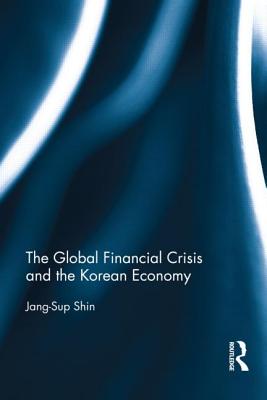The world economy fell into a global financial crisis in 2008/9 and is still jittered by its aftershocks. Like other financial crises happened in the world economy, it came as a surprise. In historical perspective, financial crises should be understood as a natural fact of life in the world economy and a more pertinent question that should be posed would be why people so easily forget and do not learn from the historical experience. This book deals with the question in two ways. First, it investigates the frame of mind that distances people from the reality of life. At the heart of it, it argues that there are wrong perceptions on the working of the world economy, in particular, the international financial market. It summarizes them as ‘the five conventional wisdoms’ in the international financial market and, by critically examining them, it draws on ‘the five financial theorems’, which would provide intellectual pillars for a more realistic understanding of the global financial market. Second, the book examines in detail the case of an emerging market economy that fell into a financial crisis twice in the recent decade. South Korea provides us with an interesting case of emerging market financial crises that came as ‘surprises’: it faced a financial crisis in 1997/98 after it had been acclaimed as one of ‘East Asian miracle economies’ and it was again befallen to a crisis during the global financial crisis in 2008/2009 after it was widely regarded as a country that had recovered from the crisis with one of the most successful implementations of the IMF-sponsored reforms. The book attempts to provide the readers with a realistic understanding of emerging market financial crises by interpreting the recent global financial crisis and the Korean crises with some general concepts manifested in ‘the five financial theorems’. It also tries to draw more general implications for policy management of emerging market economies.
The world economy fell into a global financial crisis in 2008/9 and is still jittered by its aftershocks. Like other financial crises happened in the world economy, it came as a surprise. In historical perspective, financial crises should be understood as a natural fact of life in the world economy and a more pertinent question that should be posed would be why people so easily forget and do not learn from the historical experience.
This book deals with the question in two ways. First, it investigates the frame of mind that distances people from the reality of life. At the heart of it, it argues that there are wrong perceptions on the working of the world economy, in particular, the international financial market. It summarizes them as ‘the five conventional wisdoms’ in the international financial market and, by critically examining them, it draws on ‘the five financial theorems’, which would provide intellectual pillars for a more realistic understanding of the global financial market. Second, the book examines in detail the case of an emerging market economy that fell into a financial crisis twice in the recent decade. South Korea provides us with an interesting case of emerging market financial crises that came as ‘surprises’: it faced a financial crisis in 1997/98 after it had been acclaimed as one of ‘East Asian miracle economies’ and it was again befallen to a crisis during the global financial crisis in 2008/2009 after it was widely regarded as a country that had recovered from the crisis with one of the most successful implementations of the IMF-sponsored reforms.
The book attempts to provide the readers with a realistic understanding of emerging market financial crises by interpreting the recent global financial crisis and the Korean crises with some general concepts manifested in ‘the five financial theorems’. It also tries to draw more general implications for policy management of emerging market economies.
Get The Global Financial Crisis and the Korean Economy by at the best price and quality guranteed only at Werezi Africa largest book ecommerce store. The book was published by Taylor & Francis Ltd and it has pages. Enjoy Shopping Best Offers & Deals on books Online from Werezi - Receive at your doorstep - Fast Delivery - Secure mode of Payment
 Jacket, Women
Jacket, Women
 Woolend Jacket
Woolend Jacket
 Western denim
Western denim
 Mini Dresss
Mini Dresss
 Jacket, Women
Jacket, Women
 Woolend Jacket
Woolend Jacket
 Western denim
Western denim
 Mini Dresss
Mini Dresss
 Jacket, Women
Jacket, Women
 Woolend Jacket
Woolend Jacket
 Western denim
Western denim
 Mini Dresss
Mini Dresss
 Jacket, Women
Jacket, Women
 Woolend Jacket
Woolend Jacket
 Western denim
Western denim
 Mini Dresss
Mini Dresss
 Jacket, Women
Jacket, Women
 Woolend Jacket
Woolend Jacket
 Western denim
Western denim
 Mini Dresss
Mini Dresss





































